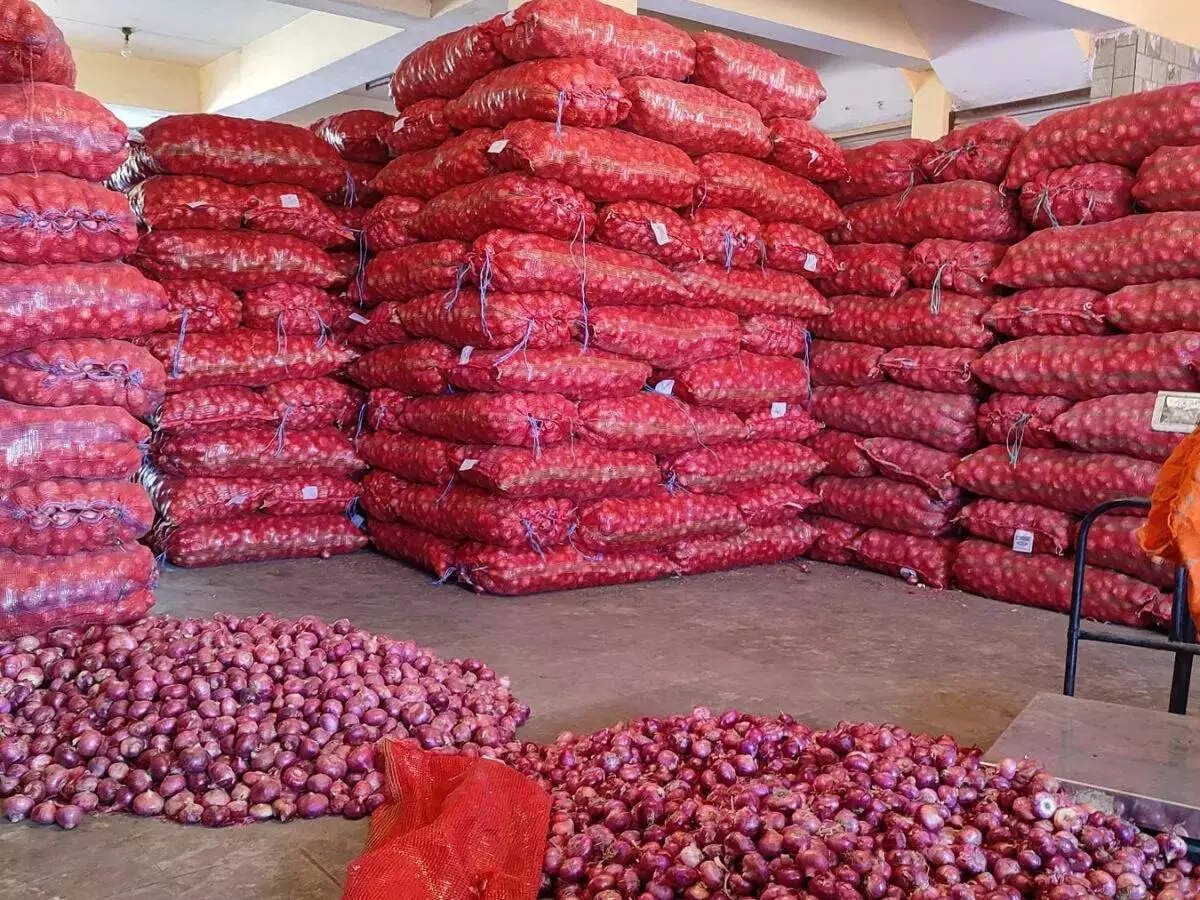NEW DELHI: The government will procure 2 lakh tonnes of kharif onion from farmers and ensure they get the right price, a top official said, claiming that the protest against export ban of onion is “sponsored by traders”. With signals of wholesale and retail prices coming down and more availability of the new crop, the Centre also expects retail prices to fall below Rs 40 by next month.
While wholesale prices in Lasalgaon, Asia’s largest onion mandi, has fallen by Rs 1,000 a quintal — from Rs 3,300 a quintal last week to Rs 2,200 on Monday, the average retail price is now Rs 57 a kg, Rs 3 less than last week.
Earlier, Union consumer affairs secretary Rohit Singh told reporters that the government has increased the buffer stock limit from three lakh tonnes at the beginning of the financial year to five lakh tonnes and then to seven lakh tonnes.
“The government may increase the limit for more market intervention, if there is a requirement… The spike in onion prices has been curbed through banning exports as well as offloading of buffers in the market,” he said. Singh added that the export ban would not affect the farmers as a small group of traders were differentiating between Indian and Bangladeshi markets. He assured that the two government agencies — NAFED and NCCF — are procuring onions that farmers bring to mandis.
“Our focus is to ensure that the farmers who bring onion to mandis don’t take them back. We are buying from markets where there is high availability and are releasing the stock strategically in areas where prices are high,” he said. The government has sold two crore kg of onions in 213 cities till December 7. The delay in kharif onion sowing due to unfavourable weather has resulted in less coverage and the late arrival of the crop. Moreover, as the stored rabi onion is getting exhausted, there is short supply and this has pushed the prices.
While wholesale prices in Lasalgaon, Asia’s largest onion mandi, has fallen by Rs 1,000 a quintal — from Rs 3,300 a quintal last week to Rs 2,200 on Monday, the average retail price is now Rs 57 a kg, Rs 3 less than last week.
Earlier, Union consumer affairs secretary Rohit Singh told reporters that the government has increased the buffer stock limit from three lakh tonnes at the beginning of the financial year to five lakh tonnes and then to seven lakh tonnes.
“The government may increase the limit for more market intervention, if there is a requirement… The spike in onion prices has been curbed through banning exports as well as offloading of buffers in the market,” he said. Singh added that the export ban would not affect the farmers as a small group of traders were differentiating between Indian and Bangladeshi markets. He assured that the two government agencies — NAFED and NCCF — are procuring onions that farmers bring to mandis.
“Our focus is to ensure that the farmers who bring onion to mandis don’t take them back. We are buying from markets where there is high availability and are releasing the stock strategically in areas where prices are high,” he said. The government has sold two crore kg of onions in 213 cities till December 7. The delay in kharif onion sowing due to unfavourable weather has resulted in less coverage and the late arrival of the crop. Moreover, as the stored rabi onion is getting exhausted, there is short supply and this has pushed the prices.







